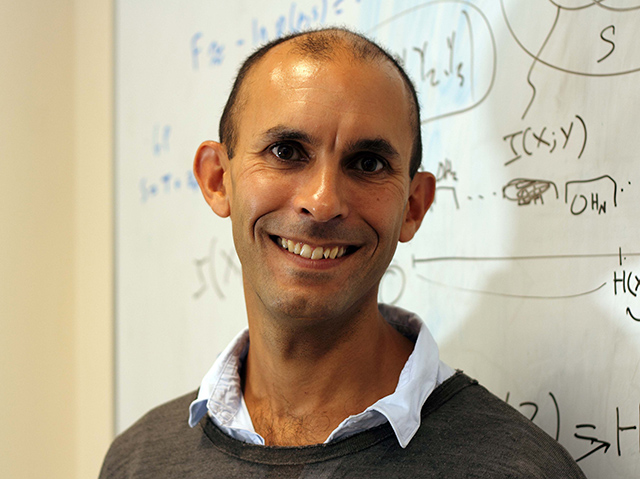The new neuroscience of consciousness: solving the real problem
Keynote speaker

Anil Seth is Professor of Cognitive and Computational Neuroscience at the University of Sussex, where he is also Co-Director of the Sackler Centre for Consciousness Science.
His research focusses on unravelling the biological basis of consciousness, one of the grand challenges of the 21st century, using a multi-disciplinary approach that spans neuroscience, mathematics, computer science, psychology, philosophy and psychiatry. His work has contributed towards understanding how perceptual processes lead to conscious awareness, integrated information theories of consciousness, implicit sensory processing in the presence and absence of conscious awareness, and theoretical frameworks for perceptual phenomena (e.g. blindsight, synaesthesia, hallucinations). Furthermore, he anticipates that an enhanced understanding of the complex networks underpinning consciousness will lead to new clinical approaches for psychiatric and neurological disorders. He is also Editor-in-Chief of Neuroscience of Consciousness, a member at large for the Association for the Scientific Study of Consciousness (ASSC), for which he assumed the role of Conference Chair for their 16th meeting in Brighton, and is a member of the steering group and advisory board for the Human Mind Project. He also edited and co-authored the book 30 Second Brain and contributes regularly to media outlets such as New Scientist, The Guardian and the BBC.
ABSTRACT The new neuroscience of consciousness: solving the real problem
The biological basis of consciousness stands as one of the great unsolved challenges in science. One approach is to ask how biophysical mechanisms can account for specific phenomenological properties of consciousness, without necessarily explaining the existence of consciousness in the first place. This can be called the ‘real problem’ of consciousness. I will describe how this approach has illuminated three distinct aspects of the biology of consciousness: level, content, and self. For conscious level, ‘how conscious we are’ can be tracked by mathematical measures of neuronal complexity that capture the unified yet differentiated nature of conscious phenomenology. For conscious content, I will describe how the emerging Bayesian framework of ‘predictive processing’ helps reveal the mechanisms underlying conscious perception. And by generalizing predictive processing to interoception– the sense of the body from within – I will develop a Bayesian view of the experience of ‘embodied selfhood’. Speculatively, this may help us understand the deeply subjective nature of consciousness as emerging from systems that care intrinsically about their own existence. It also suggests powerful new approaches to understanding and treating clinical disorders of selfhood and conscious perception.
About 2016 QBI Postgraduate Student Symposium
Date
Friday, 25 November 2016
9am - 5:45pm
Description
This is an all day symposium including keynote address, panel discussions, student presentations, morning tea, lunch and afternoon tea followed by a cocktail party.
The symposium is open to all University of Queensland students and staff as well as affiliated universities.
